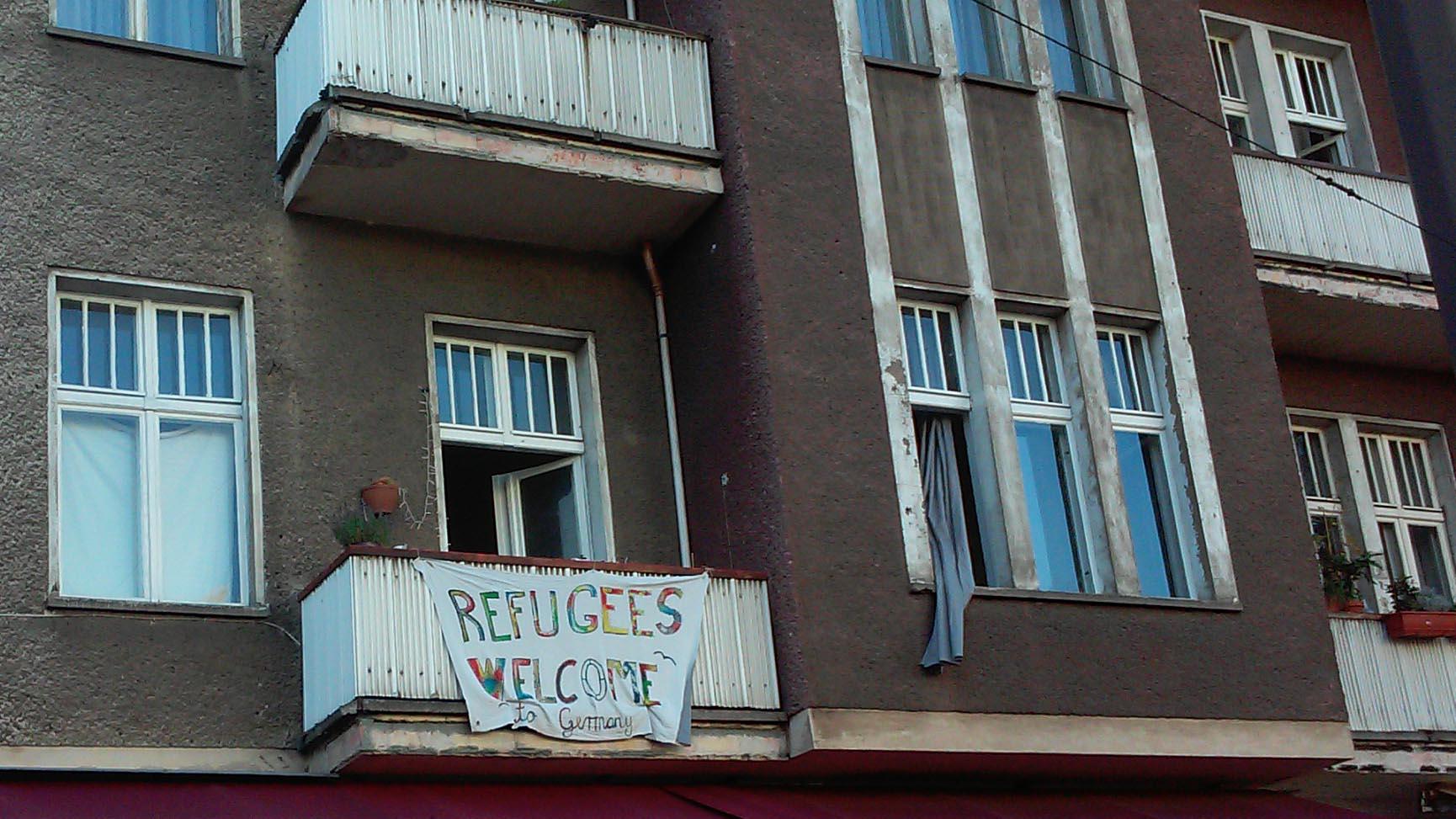"Willkommenskultur" is hot right now in Germany. The was word coined by politicians as a part of a campaign to attract highly qualified immigrant workers to sparsely populated areas of the country.
Willkommenskultur was a word coined by German politicians as part of a campaign to attract highly qualified immigrant workers to sparsely populated regions of the country. It’s been co-opted by a volunteer army of citizens determined to make arriving refugees feel at home.
On a recent rainy Sunday in Kranoldplatz, a small park in the trendy, diverse and rapidly gentrifying district of Neukölln, earnest volunteers set up for a Refugees Welcome summer party. The gloomy weather has two of the party’s organizers, Maxi Lieberman and Anna Dierking, worried.
The purpose of the party is not just to welcome refugees, but also to give old and new neighbors a chance to meet and get acquainted. Lieberman frets aloud that no one will come if the rain doesn’t stop. She and others have been planning this event for months. Both Dierking and Lieberman are students, like many of the volunteers currently caught up in Germany’s latest wave of Willkomenskultur.
Dierking, like many of these volunteers, was galvanized into action by news events such as the right-wing group Pegida’s anti-immigration marches last year. Volunteers have been doing more than just throwing welcome parties. They’ve provided services for recent arrivals, like free German and computer classes, and babysitting for any mothers who wish to take these classes.
In Neukölln, shelters practically pop up overnight. Setting them up is usually coordinated by volunteers, they're staffed by volunteers, and they offer donated services from the goodwill of average German citizens. People donating their time, money and goods has largely fueled the response to Berlin’s refugee crisis.
The organizers of the party in Kranoldplatz approached a range of local people asking for help in planning it: institutions such as churches, community centers, youth clubs — even bands. Basically there was no budget, everything from food and drinks to entertainment was donated. Organizers also asked local politicians — and even got some to help — though they refuse to divulge who because they don’t want anyone grandstanding on what they say was ultimately a community-led effort.
The sun comes out by the time the party starts. The air is festive, and booths lining the square offer games for children, food and drinks, and information for people who want to help, and resources for refugees seeking help. I find Waqas, a young Pakistani refugee, offering resources for refugees and soliciting donations at the booth of an organization called Refugees Emancipation. He tells me that the group helped him navigate his difficult first months in Berlin and he’s here to give back.
On one end of the square, across from the stage, Brazilian musician Fabiano Lima says he’s doing his part by offering a percussion workshop. It is a popular one, and provides the score for what ultimately appears to have been a successful party.
The volunteers who organized and staffed this event, and the volunteers energetically providing for the waves of exhausted, and largely dispossessed “Flüchtlings” daily entering Berlin (and other regions of Germany), are making Germany look good on the world stage. But some who are part of this effort have privately shared that the German government’s support of their work is minimal at best, and that official refugee support agencies have been under-funded and under-staffed for years.
Anna Dierking hopes this will change soon: “We try to establish a welcoming culture from the bottom. We are not in charge of taking the decision on the political level, we only can demonstrate our will, and I think from the bottom up … we are welcoming. … This is what we can do, and this is what we do.”
Hopefully, local, national, and EU officials will soon take the cue and come up with a sustainable plan to address the refugee crisis that doesn’t rely heavily on unpaid labor and donated goods and services.
